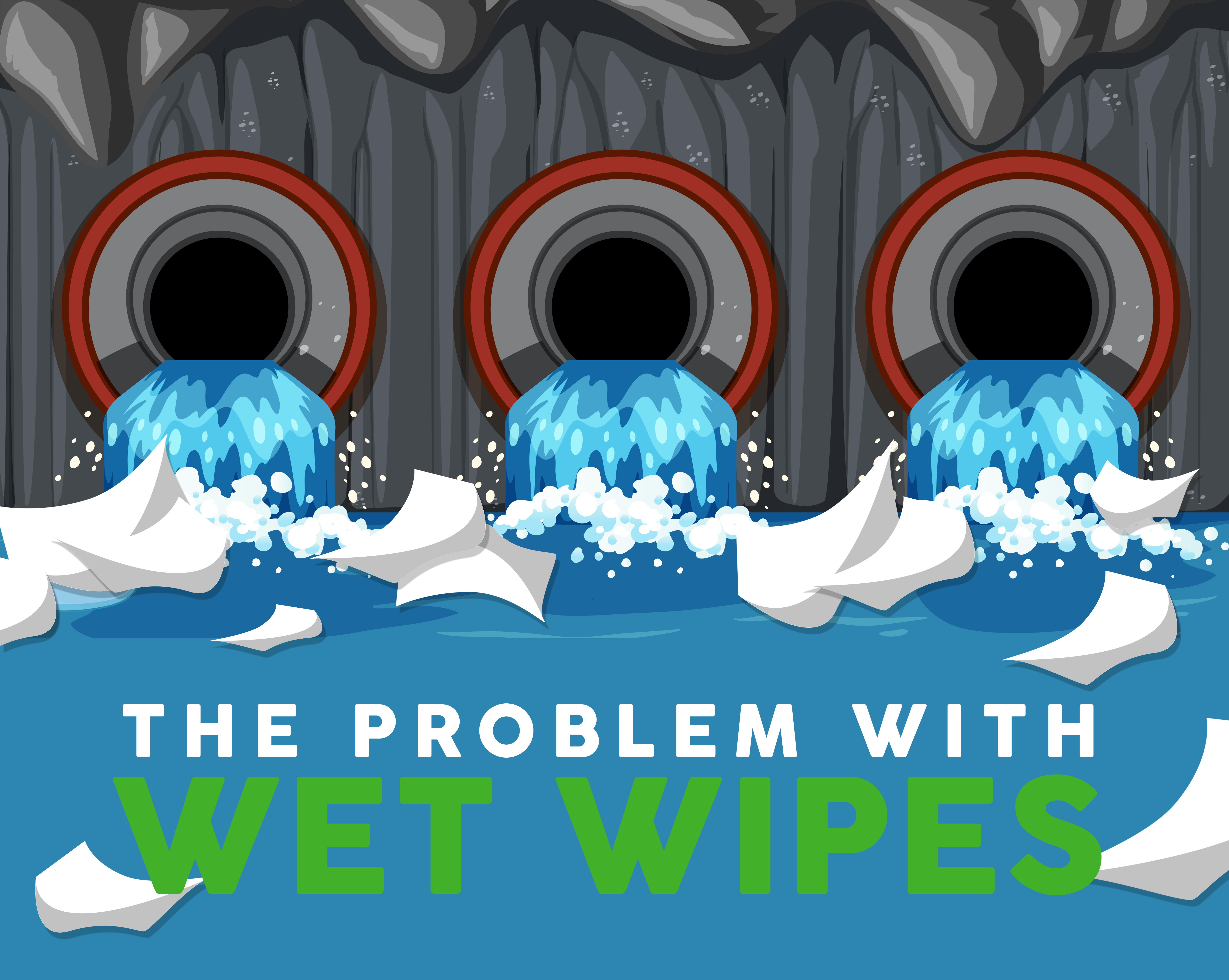The problem with Wet Wipes…
Oh wet wipes! You can be so useful! But you cause so many problems! Here in the UK, we are a nation that thrives on convenience and any product that’s quick, cheap and easy to use is a must for most households.
The invention of the wet wipe in the late 1950’s has led to a global explosion in the use of these handy little cleaning towels which we have adapted to use for everything from taking off our make-up at the end of a long day (yep, I’m guilty of this one!) to cleaning our kitchens and bathrooms, changing our babies and more. Wet wipes are everywhere but their increased usage is now causing huge global environmental and drainage issues which are costing us more and more every year to solve.
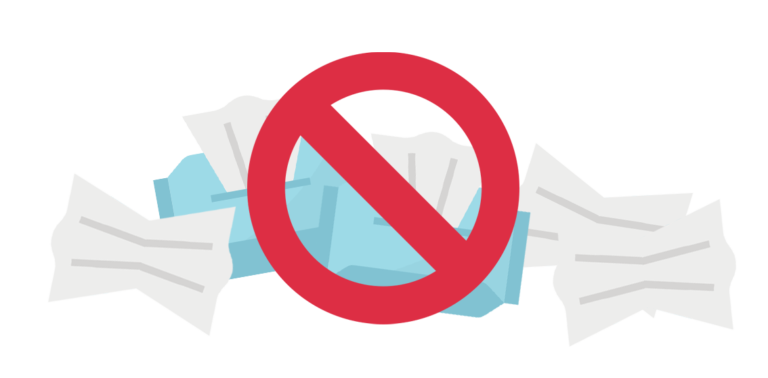
Why are wet wipes a problem?
Wet wipes cause an assortment of issues, affecting us on a variety of personal, financial and environmental levels. Although we may not think that by flushing the odd baby wipe down the toilet we’re not causing any problems, in reality not only are we blocking our local drainage systems and slowing down the efficiency of our toilets and sinks, but we are also having a huge impact on the environment.
On a global scale, these delicate little sheets of knitted fibres are being carried out to sea, lining river beds and estuaries before making their way out into the ocean, and are sometimes sadly mistaken for food by marine life. Thousands of marine animals such as sea turtles, become a victim of this trickery every year, mistaking these floating white sheets for their normal food supply of tasty jelly fish, which sadly leads to the untimely death of these beautiful animals.
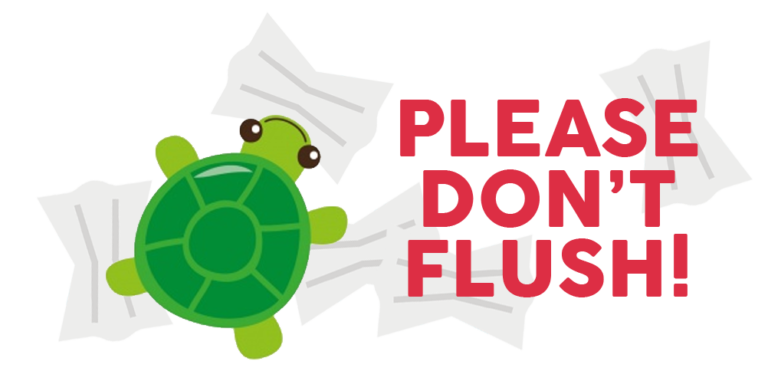
Closer to home, wet wipes are also causing substantial problems in our UK drains. You may remember back in 2017, an enormous ‘fatberg’ (a huge build up comprised of a combination of wet wipes, fat and grease) was discovered in East London after tenants in the local area complained of not being able to flush their toilets. This monstrosity weighed the same as 11 double decker buses and was the length of two football pitches! The cost of removing this was enormous and it was recorded as the biggest blockage ever discovered in the UK.
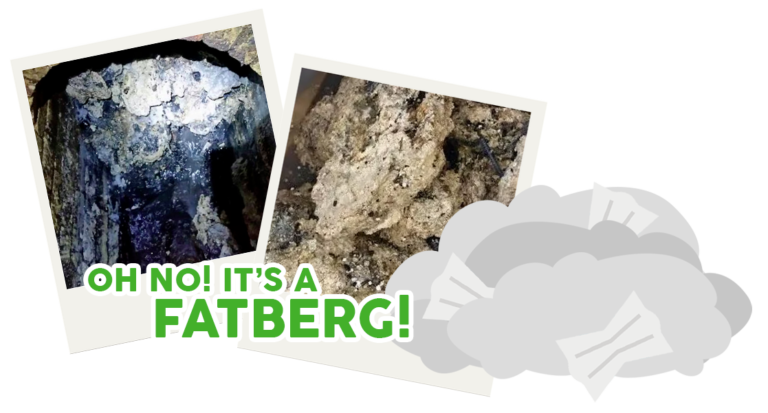
‘Fatbergs’ are formed when plastic based waste such as wet wipes get snagged on imperfections in the drainage system and accumulate into bulky masses. Fat, grease and oils then begin to settle amongst the mass and huge blockages begin to form, reducing the water flow until it eventually stops. These ‘fatbergs’ can grow to huge sizes and can affect entire neighbourhoods if left unattended - in fact a study by Water UK in 2017 identified that there were over 360,000 blockages a year are caused by wet wipe products, costing over £100 million to clear. The cost of companies dealing with these issues is directly affecting the cost of our water bills, and with over 90% of blockages being caused by wet wipes, there seems to be no end in sight for the cost of wet wipe clean up.
What are wet wipes made of?
Wet wipes are usually comprised of a combination of cotton, rayon (cellulose) and plastic fibres, the latter of these ingredients causing the bulk of the issues. A range of fibres are added to the cotton base – a plant based fibre called cellulose is added for absorbency and plastic based fibres such as polyester or polypropylene are added for strength. It is the addition of these plastic based materials that in turn make the wipes durable enough to complete the task at hand, but in doing so means they are not able to break down successfully.
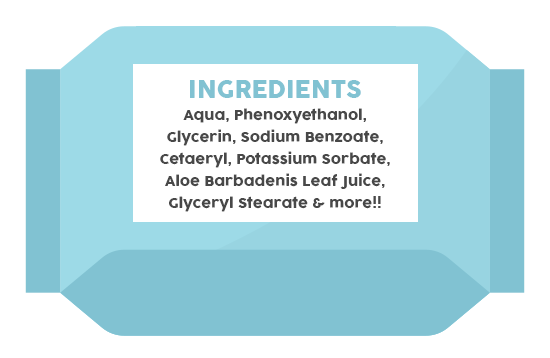
Many wipes sold in the UK are now labelled as ‘flushable,’ which obviously leads to most people believing they are perfectly safe to dispose of down the toilet. Test conducted by scientists at the Water Research Centre identified that no flushable wipes tested in the UK so far have passed the water industry standard tests for disintegration – you can read more about this from the BBC here. A simulation was created to mimic the effects of a drainage system on the discomposure of wet wipes, and not a single brand of ‘flushable’ wipes disintegrated to a point where they could be deemed suitable for disposure down a drainage system.
One of the main issues with the marketing of these wipes, is the misuse of language which leads the public to believe that what they are buying is environmentally friendly and therefore no harm is caused by their use. ‘Bio-degradable’ is a word which we often assimilate with being an environmentally friendly alternative to another more harmful product, however what most of us don’t realise is that these items often take months to break down in water at best, and therefore they are still not deemed as suitable for drainage disposure.
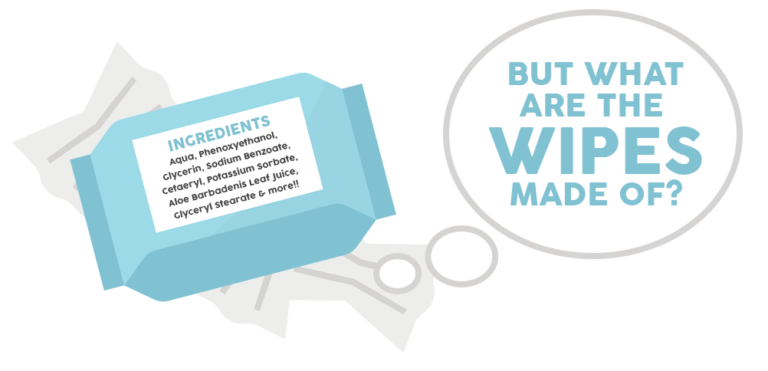
In addition to this, the ingredients detailed on the packaging of wipes often refers to the chemicals added to the wipes and no mention of the structure of the fibres are actually made. For example, ingredients such as Aqua, Alcohol and Glycerin to name a few may be listed, however there is no mention of the fibre composure of the wipes and so many of us are completely unaware that they contain plastic fibres that are unable to naturally break down.
So what can you do to help?
There are many ways we can combat the war on wet wipes by simply making some small changes to our everyday routine.
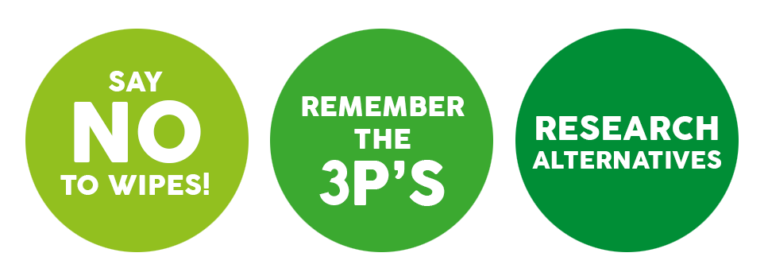
-
One of the main things that we need to remember is that despite what the package says, NO wet wipes are flushable… EVER. When it comes to wipes, bin it, don’t block it! The only way to dispose of wet wipes is to throw them in the bin to avoid blockages in your drainage.
-
Always remember the 3 P’s of drainage! Poo, pee and paper are the only three things that need to go down the toilet. Anything else is likely to cause issues and so avoidance is the best method of prevention!
-
Look into swapping to alternatives to wet wipes. We understand that sometimes this can be difficult, however there are many products now available that can be used as a substitute for wet wipes, some of which we have found below:
-
Compostable wipes
Bamboo and water based wipes are the best alternative if you are looking for a wet wipe type product. These wipes by ‘Cheeky Panda’ on Amazon are made from bamboo instead of plastic based fibres, and even though it is still not recommended that they are put down the toilet, they can be placed on a compost hear to decompose within a matter of weeks. You can find them here - https://amzn.to/2JBWFUw
-
Re-useable water activated make up removing towels
These amazing cloths have been seen all over Instagram and the You Tube channels of many fashion and beauty bloggers in recent years, and for good reason! These one-time purchase towels simply need activating with water in order to remove even the stubbornest of make-up. Simply run them under the tap and scrub to your hearts content to make even the best water-proof mascara quake in its boots! Looking grubby? Throw them in the washing machine and they’re good to go again! We’ve found them in many high street beauty store and online, but we like these ones here - https://amzn.to/30I8TCj
-
Make your own wet wipes
One of the simplest (and cheapest!) ways to replace wet wipes is to substitute them with these handy DIY wipes found on You Tube. With even the simplest ingredients, you can make a huge stockpile of wipes with none of the plastic nasties! We like this tutorial - https://www.youtube.com/watch?v=D1yL3ZTSWFo
-
Bin it, don’t flush it!
If you simply must use wet wipes, PLEASE do not put them down the drains! Pop them in the bin with all your other household waste and send them on their way to the local waste disposal site. Trust us, you’ll thank us later!

Talk to your local Metro Rod specialist
We are always happy to arrange a free site assessment and no obligation quotations for any work you might need. Alternatively, you can call our emergency hotline number on 0800 66 88 00
Get in touch Drainage Services